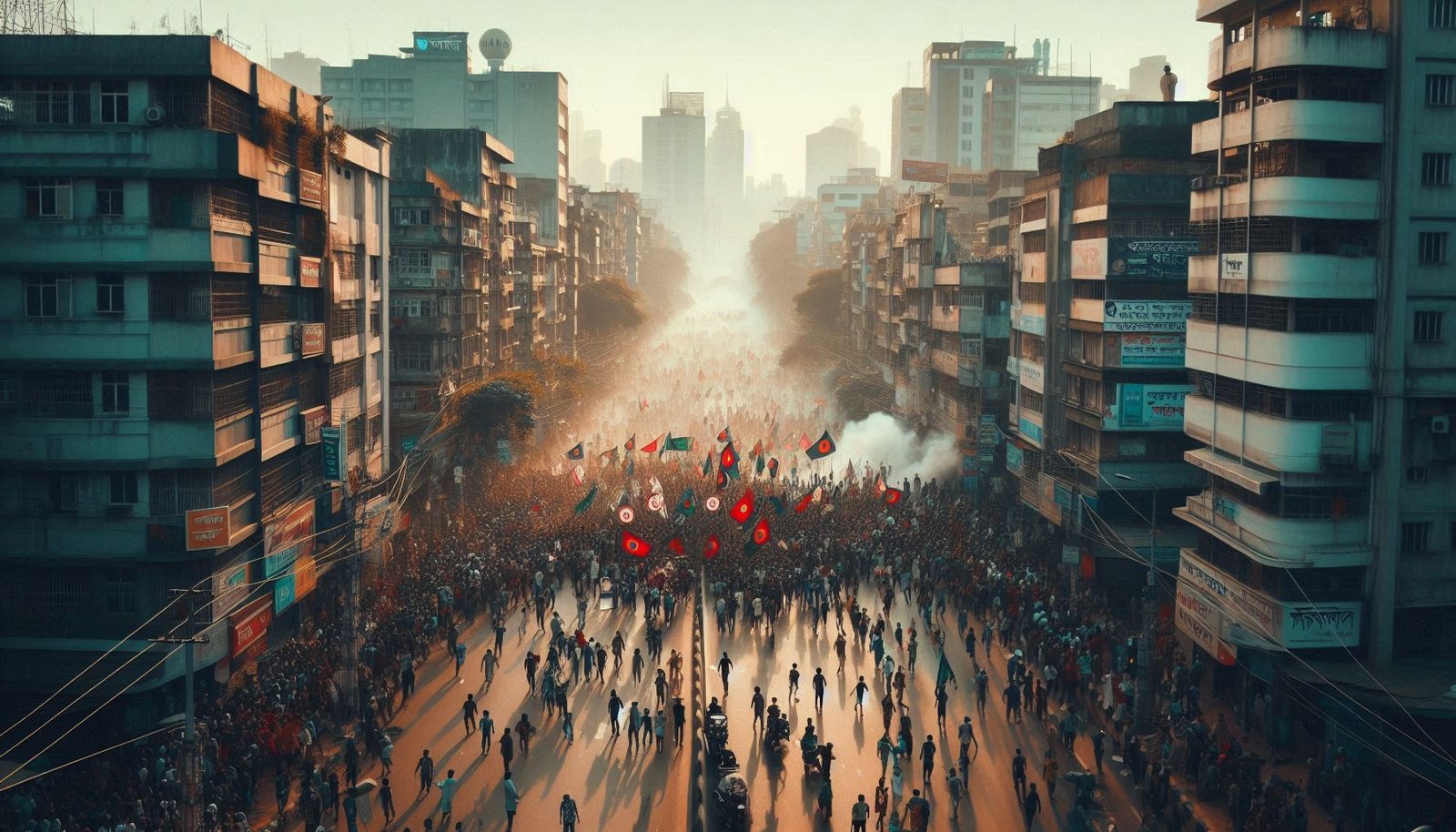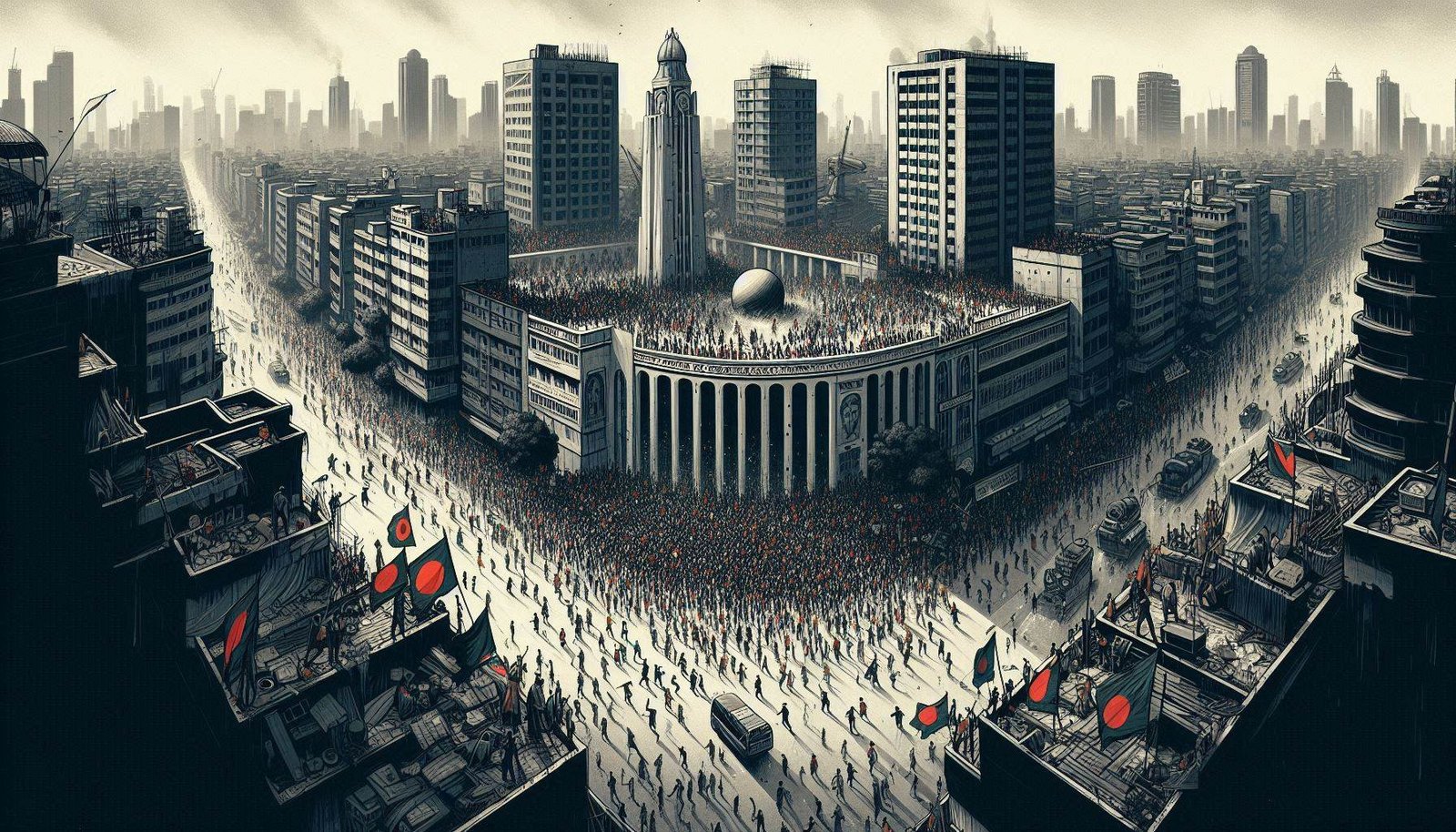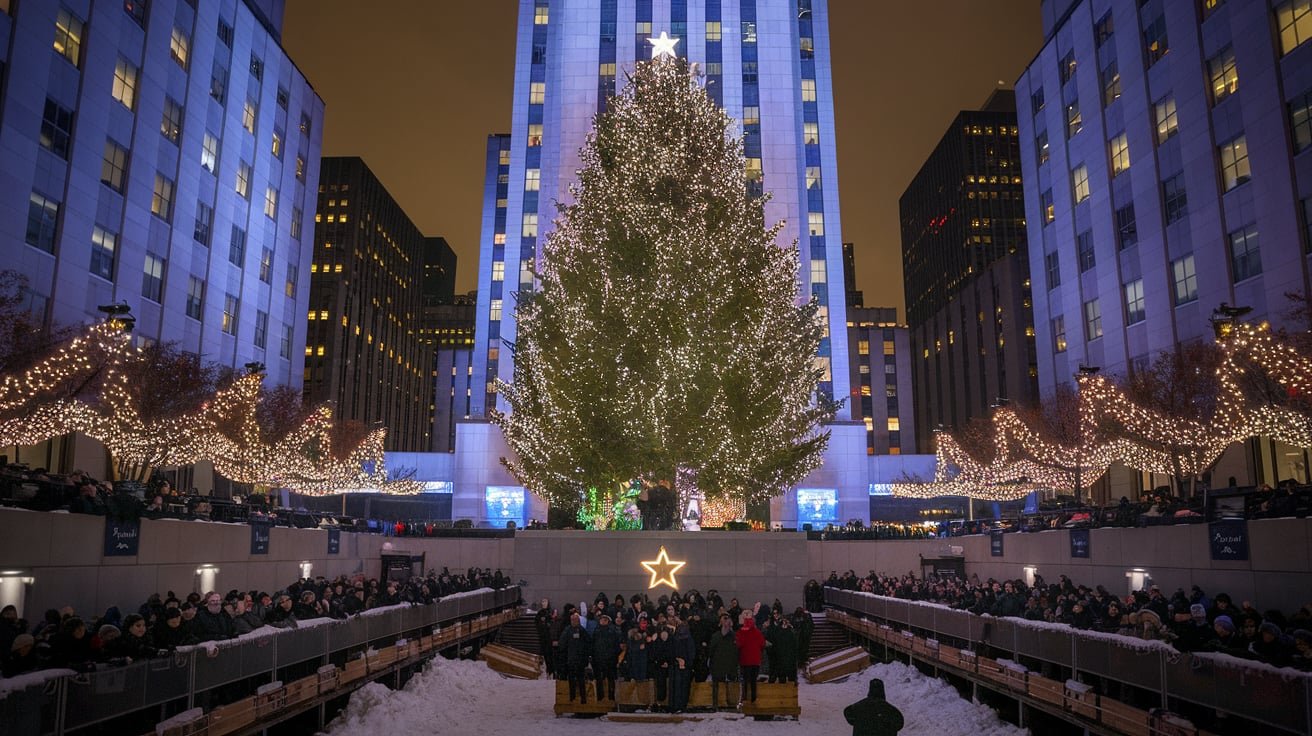Bangladesh Protests: Unrest, Resignation, and Economic Challenges
Background and Trigger:
- Bangladesh, the fourth-largest country in the world by population, has been on edge due to widespread protests.
- The demonstrations began over a controversial quota system for government jobs.
- This system reserved a set proportion of roles for descendants of fighters from Bangladesh’s War of Independence in 1971.
- The quota system was seen to appease Prime Minister Sheikh Hasina’s political base.
The Protests:
- The protests initially started as peaceful demands from university students to abolish quotas in civil service jobs.
- A third of these jobs were reserved for relatives of veterans from the 1971 war.
- Students argued that the system was discriminatory and needed an overhaul.
- Although their request was partially met, the protests transformed into a broader anti-government movement.
- People from various walks of life joined the movement, leading to clashes and unrest.
- Over 300 people lost their lives during the protests, with media and protesters blaming the police.
Unemployment and Economic Discontent:
- Despite being a fast-growing economy, Bangladesh faced challenges translating growth into jobs for university graduates.
- Approximately 18 million young Bangladeshis were seeking employment.
- University graduates experienced higher rates of unemployment compared to their less-educated peers.
- The country had become a major exporter of ready-to-wear clothing, but job opportunities remained scarce.
Sheikh Hasina’s Resignation:
- Prime Minister Sheikh Hasina, who had ruled for 15 years, faced mounting pressure.
- Critics accused her of becoming increasingly autocratic during her tenure.
- After weeks of protests, she resigned abruptly and fled the country.
- Crowds stormed her official residence in Dhaka, resulting in violence and casualties.
- An interim government is expected to be formed, and Nobel Prize-winning banker Muhammad Yunus may take over as interim leader.
Conclusion:
- Bangladesh stands at a historic turning point, with significant political shifts and social upheaval.
- The protests reflect deep-seated issues related to governance, economic policies, and youth unemployment.
- As the situation evolves, the nation grapples with its future path and leadership.
latest video
news via inbox
Nulla turp dis cursus. Integer liberos euismod pretium faucibua







